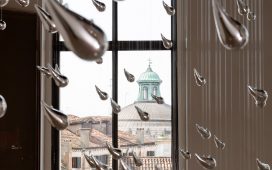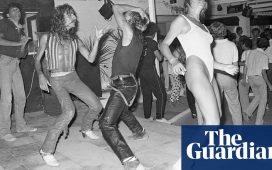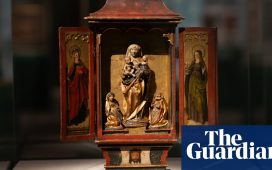The market for historical items has seen significant growth in recent years, with more and more private individuals—who are not ardent collectors—offering for sale pieces they have inherited from their families, in some cases without being aware of their value. Of particular interest are historical items from the Nazi period and the Second World War, whose sale raises moral and ethical questions concerning the memory of the Holocaust and the history of the Jewish people.
Although his father was a collector and he was no stranger to the world of collectables, Eyal Ilya began collecting and selling historical artefacts almost by chance. It was his previous occupation in the field of safe cracking that attracted him to this world. “I used to buy old and neglected safes—mostly from estates of the deceased, most of them closed—in order to renovate and sell them in second-hand sites,” he says. “Most of the safes were obviously empty, but occasionally a safe with an exciting surprise in it would pop up.”
Initially, Ilya would sell the items he found in the safes to large auction houses in Israel, with the help of his good friend, the illusionist Uri Geller. Later, following successful sales, he decided to establish the Pentagon Auction House.
Anti-Semitic memorabilia
Ilya first learned about collectibles from the Holocaust through a large collection he inherited from his father, which stirred his curiosity to explore the objects’ stories. While looking into and studying his collection, Ilya learned of the existence of a market for anti-Semitic memorabilia, primarily from the post-World War I period until the fall of the Nazi regime. The collectibles included anti-Semitic leaflets, objects from concentration and extermination camps, Nazi stamps and many other accessories used by the Nazis themselves.
“The beret of a soldier in the German army—extremely rare! In very good condition!” Starting price: $500. Courtesy of Pentagon Auctions
“For me, I view the collecting of these objects as a mission for several reasons. First of all, in order to preserve the memory of the Holocaust. By provoking discussions and emotions with these sales, I believe I’m doing a good service in preserving the remembrance of the Holocaust,” he says. “Also, I have set myself a target—to buy as many of these objects as possible, so they won’t end up in the hands of anti-Semites or anti-Jewish organisations, and to preserve them as educational tools.”
Who collects these objects?
Ilya emphasises that he sells the private property of people who are interested in it. “It may surprise you, but the collectors of these objects are Holocaust survivors themselves or children of Holocaust survivors. I find it hard to explain this phenomenon, but it’s a fact. I understand people who are looking to buy a yellow badge [which were used to identify Jewish people during the Nazi period] or something like that, but I sometimes fail to understand when Holocaust survivors buy Nazi items.”
A Nazi Party flag up for sale on Pentagon Auctions. The sale page states that it was “hung on official Nazi buildings”. Starting price $500. Courtesy of Pentagon Auctions
Some of the collectors explain that their goal is to preserve the memory of the horror they or their parents experienced. Some seek to purchase the pieces for educational purposes and because they fear that they will end up in the wrong hands. And some do it out of a strong desire to document these items and preserve their memory and the memory of the Holocaust.
When asked if he has also encountered anti-Semitic organisations from Israel or the world that tried to purchase such objects through him, Ilya replies, “I was never approached by any such organisation. There are many collectors who buy from me, and all of them, without exception, are Jewish people and almost all the items remain in Israel.”
“The helmet of an SS soldier from the Second World War—very rare!” Starting price $1,000. Courtesy of Pentagon Auctions
What are the most sought-after pieces by collectors?
“It is actually personal items of Jewish people that are most in demand—yellow badges and uniforms of the prisoners are the items that sell for the highest prices,” Ilya says. Recently, the auction house sold a yellow badge for about $1,700. “The yellow badge is an icon; it is the most recognisable thing when talking about the Jewish Holocaust. There is hardly anyone in the world that will see a yellow badge and will not recognise it”, Ilya explains.
Many auction houses sell objects from the Holocaust period. Like many other fields of collectibles, a counterfeit industry has also developed for these objects. Some counterfeiters produce fake yellow badges or manage to find old fabrics, which can still be found in Eastern Europe, and try to forge old prisoners’ uniforms. “There is a way to detect forgeries,” Ilya says. “First of all, there are certificates that must be attached to the particular object, cross-checking with other objects in order to identify an original is also part of the authentication process. There must be evidence of the authenticity of the item. I was once offered a document that was totally tattered on the outside, and pretty new on the inside, and this immediately aroused suspicion that it was a forgery, and after a thorough examination it turned out that it was indeed forged. I was surprised to discover that the forgery was produced in Israel by a person who claimed that it wasn’t a forgery, by a “fantasy”. He claimed that there had never been such certificates, and that he invented them, inspired by the Holocaust. He stamped a Nazi stamp on a photo and created the document. There is money to be made here, and people are taking advantage of it
Ilya adds: “In markets all over Bulgaria you can find a lot of counterfeits of yellow badges, and in Poland they also produce a lot of counterfeits from fabrics that are almost 100 years old.They seek out Jewish tourists in the markets and try to sell the forgeries to them, falsely claiming that these are authentic items, along with other Judaica products. In Israel, I only came across one forger”.
“A German Navy Ceremonial Knife from the Second World War, including Nazi ornamentation on the knife. Excellent condition! Extremely rare!” Starting price $600. Courtesy of Pentagon Auctions
The online auctions
Pentagon Auction House’s sales take place online, at least once a month, lasting many hours during which hundreds of items are sold. The upcoming auction, for example, which will take place on 13 February on the Bidspirit portal, will include a decorated Nazi Navy knife which has a starting price of $600 and currently stands at $750. Also on offer at the same auction is a set of knives with swastikas, lapel garment pins, an SS officer helmet and more.
The sale page reads: “Dear friends and collectors, the Nazi items in the auction are from the collection of a Jewish man, a Holocaust survivor who for years bought every Nazi item he could find so that neo-Nazis would not get their hands on them. Now the items are offered for sale, including items that have never been and will probably never be again on Bidspirit.”
Ilya concludes: “All the objects on sale come from the same Jew, who accumulated and bought them for many years, until he finally decided to sell them. Thousands of people have already signed up for the auction, but anyone can join in and watch. I will be the person who will manage the auction.”
The entire auction process can be viewed without prior registration.








